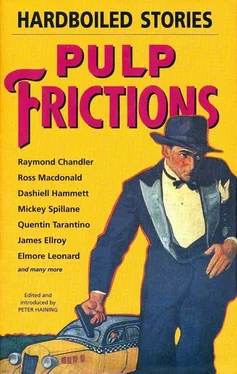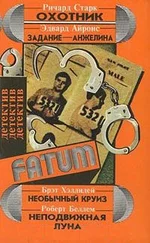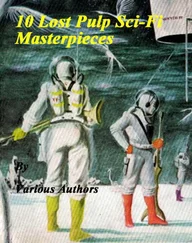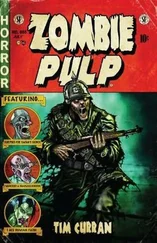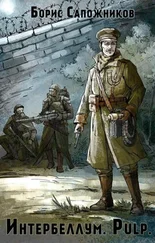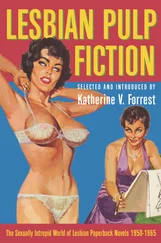They saw him go into the front part of the jail, where his office was, and sit down at his desk. Near him a clerk was working at a typewriter, painfully typing a letter with one finger. A new turnkey came on duty and sat for a while on the sheriff’s desk, talking to him, then disappeared.
George had been looking out the window of his cell ever since he had eaten.
‘What’s up?’ Red demanded.
‘Squad car cruising this district. Sort of making regular rounds. The chief of police’s not taking any chances, I guess. Time is it?’
Red pressed his face against the bars and stared out into the front office.
‘Ten after six.’
Johnny watched them. They seemed excited. He was almost certain they were up to something; what, he couldn’t imagine. Of course Red had boasted that they had friends in El Portal, but Johnny thought that he might be joking. After all, ‘friends’, if any, don’t storm jails. But why had they been in such a hurry to get to El Portal? Were they running away from something or towards it? Johnny watched, while Red walked back and forth slowly.
‘How many left now?’ George asked suddenly.
‘Three,’ said Red, ‘but the clerk don’t count and I can’t see the turnkey.’
There was a long silence, then Red gave a jump and whispered:
‘Okay, George.’
Pressing his face against the bars, Johnny saw three well-dressed men walk quickly into the jail. The sheriff, who had been reading a newspaper, jumped up. But the men were already holding guns on him. A dapper little man in a tight blue suit seemed to be the leader.
‘Well, Buffalo Bill,’ he said, ‘stick up your paws. Reach for the ceiling.’
The sheriff stood with his mouth open, his hands shaking.
‘Where are you, boys?’ yelled one of the men.
‘Right back here,’ yelled Red. ‘Get the turnkey.’ In his excitement Red began to rattle the cell door. He had forgotten all about Johnny, who still had his face pressed to the bars.
‘Where is he?’
‘Look around for him. He can’t be far.’
The man in the blue suit shouted at the sheriff: ‘Where’s the turnkey?’
‘Don’t know.’
‘Remember quick.’
Johnny held his breath.
‘I won’t tell you.’
‘Look for him, look for him,’ cried Red.
The man in the blue suit hit the sheriff over the head with the barrel of his revolver, and when the sheriff didn’t fall, he hit him again.
Johnny gritted his teeth.
Staggering, the sheriff went for his gun. A man in a brown suit jumped forward suddenly and hit the sheriff in the mouth with his fist. The sheriff fell back into his chair. In spite of his bravado, you could see that he was a very old man; his hat had fallen off and his sparse grey hair was standing up all over his head. The man in the brown suit disarmed him, then leaned forward and hit him again with his fist.
‘Talk, you old goat!’
But the man in the blue suit shouted:
‘There’s the turnkey.’
Johnny heard the turnkey cry out.
Then he saw two of the men pulling him up the corridor. The clerk had fainted and had fallen forward across his desk, upsetting an inkwell. Johnny saw the ink dripping to the floor.
The turnkey, pale as death, goaded by the visitors, who were nervous now, fumblingly unlocked the door of Red’s cell, then George’s. Red leaped out into the corridor. The man in the blue suit handed Red an automatic, then turned and hit the turnkey over the head with the barrel of his revolver. The turnkey fell limp. George grabbed a Thompson gun from one of the men and they all started down the corridor. The man in the blue suit turned.
‘What about this monkey?’ he demanded, jerking his thumb at Johnny.
‘Don’t pay no attention to him,’ cried Red, ‘he’s a softie. Let’s get going.’
Johnny stood at the door of the cell, not knowing what to do. He was trembling with excitement and rage. Those dirty, lowdown brutes, treating a nice old guy like that; it was just ignorance and viciousness; absolutely unnecessary; they could have managed the jailbreak much better with a little less violence.
The man in the brown suit amused himself by slapping the sheriff’s face several times very hard. Johnny saw the old man recoil; his nose began to bleed. Johnny lost his head. Rushing down the corridor, he tackled George from behind, and when they fell, he grabbed George’s machine gun and got to his knees. George was knocked out by the fall onto the cement floor and lay groaning.
‘Beat it,’ yelled the man in the blue suit. ‘Ain’t that a siren I hear?’
Red glanced at George, then he fired twice at Johnny, two snap shots that went wide. The machine gun cut loose in Johnny’s hands. Scared half to death, and amazed by the violent recoil of the gun, Johnny tried to stop it; he was firing high, spattering lead all over the walls and ceiling of the jail. The men ran out, shouting. Red turned and fired again, missing; then he ran out. The gun slipped from Johnny’s grasp, kicked him in the stomach, knocking him over; then it subsided.
He heard the screaming of sirens and the roar of a powerful motor on the getaway, then he got groggily to his feet and walked over to the sheriff.
‘Are you all right?’ he cried.
‘Well,’ said the sheriff, trying to smile, ‘I wouldn’t go as far as to say that, but I’m still here.’
The judge leaned forward and looked at Johnny and the girl, who were a little nervous and kept glancing at each other. The judge was a young man with the face of a humorist.
‘Case dismissed,’ he said, then he shook his finger at them. ‘Now I could say, let this be a lesson to you. But I know it won’t. Nothing is ever a lesson to anybody, and if that sounds like philosophy, make the most of it. It was a mighty nice thing you did, standing up for old Jim Hughes, but why couldn’t you have used a revolver! It’s going to cost us five hundred dollars to fix up that jail and we may take it out of your share of the reward.’
A bailiff turned to the sheriff and winked, then they both burst out laughing.
‘Order in the court,’ said the judge. ‘Another thing, if Jim Hughes was a Democrat I’d like him better, but I guess he just got started wrong. As I said before, case dismissed.’
‘Thanks, your Honour,’ said Johnny, grinning.
The sheriff got between Johnny and the girl and put his arms around them.
‘Don’t suppose you want to go over and see your friends in the new city jail, eh?’ He laughed, then he groaned and rubbed his jaw. ‘That one fellow surely had a hard hand. Must have done some honest work before he started using a gun. You kids come and have lunch with me and the missus. She wants to meet you. How about it?’
‘Well,’ said Johnny, ‘I’ve got to see a fellow first?
‘What fellow?’ asked the girl.
‘Why? said Johnny, ‘that boy friend of yours. I feel like I’m responsible for getting you in this jam, so I thought I would—’
‘Going to ask him to take me back?’
‘Well, I thought...’
The sheriff stood looking at them, smiling slightly.
‘What an idiot you are!’ said the girl, then she turned to the sheriff. ‘Yes, we’ll come for lunch?
One writer to develop W. R. Burnett’s concept of telling stories from the criminal’s viewpoint was James M. Cain, another genuine original in the field of hardboiled fiction, whose first novel, The Postman Always Rings Twice, published in 1934, also guaranteed his enduring fame. The story of a young drifter who lusts after the wife of an ageing café proprietor, as a result of which both plan the old man’s murder, was another instant best-seller and soon afterwards filmed. Where Cain differed from his predecessors — and especially from Dashiell Hammett and Raymond Chandler with whom reviewers persisted in comparing him — was in making most, if not all, of his characters genuinely unpleasant people and revealing through their emotions and actions how they could ultimately commit murder. As Chris Steinbrunner and Otto Penzler have explained in Encyclopedia of Mystery and Detection (1976), ‘Whereas Hammett and Chandler wrote about good-bad, soft-tough detectives who tried to unravel the mess that someone else caused by a violent or greedy act, Cain created two-dimensional characters interested in themselves and motivated by their lust for money or sex or some form of snobbery. They are flawed characters because they are too thoroughly evil and Cain shows them no mercy.’ The author’s biographer, David Maddern, has gone even further and called Cain ‘the twenty-minute egg of the hardboiled school’.
Читать дальше
